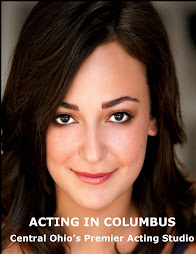
The Casting Process
It sometimes involves a series of auditions before a casting panel, composed of individuals such as the producers, director and/or choreographer. In the early stages of the process, candidate performers often may present prepared audition pieces such as monologues, prepared sides or cold readings, from the script. Later stages may involve groups of candidates attempting material from the work under consideration in various combinations; the casting panel considers both the talent of the individual actors and the chemistry of their combination.
When a Casting director is working on a Print Advertising or TV Commercial casting project, then the talent comes in and is photographed or put on video with no one else in the casting session. The day's work of all the talent is then viewed on an audition website by the clients. A choice can occur that day or the next day with the production being only days away. There is more of this type of casting (commercial/print) going on than any other type.
Depending on the prestige of the role, casting calls may go out to the public at large (typical for community theatre and independent films), to professional and semi-professional local actors (for supporting roles in theatre and film) or to specifically selected actors (for leading roles, especially in films).
In the production of film and television, a similar process is followed. However, especially for major productions, the process of selecting candidates for sometimes hundreds of parts and possibly thousands of extras may often require specialized staff; while the last word remains with the people in artistic and production charge, a Casting director (and/or Casting Assistant, Casting Associate) may be in charge of most of the daily work involved in this recruiting process during pre-production; in addition the "CD" may also remain as liaison between director, actors and their agents once the parts have been cast. Some of them build an impressive career, e.g. working on numerous ambitious Hollywood productions. The significant organization of professional screen - and theater casting in the US is the Casting Society of America (CSA), but membership is optional.
At least in the early stages and for extras, casting may be decentralized geographically, often in conjunction with actual shooting planned in different states, e.g. in Hollywood or New York (studio) and one or more exotic locations (e.g. Hawaii, the Far East) and/or budget locations, e.g. Canada, Ireland. Another reason may be tapping in to each home market in the case of an international co-production. However for the top parts, the choice of one or more celebrities, whose presence is of enormous commercial importance, may rather follow strictly personal channels, e.g. direct contact with the director.











